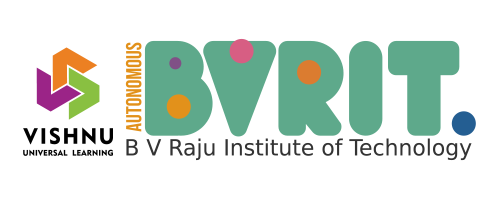Overview
Department of Electronics and Communication Engineering was established in the year 1999 for imparting a state-of the- art and quality education, training and research in the field of Electronics and Communication Engineering and allied areas. The department offers a Bachelor’s program with an intake of 240 students per year and Two Master’s Programs in Embedded Systems and VLSI Design with an intake of 12 students each.
Department has state-of the- art special laboratories in the areas of Embedded systems, Digital Signal Processing, VLSI design, Robotics, Advanced Communications and Artificial Intelligence and Machine Learning. Department is prestigious with the latest Synopsys, Xilinx, LabVIEW from National Instruments & CCS from Texas Instruments modules and tools and MATLAB to cater various specializations. Further the Department conducts Add on courses and training programs for PG students in collaboration with CYIENT, SYNOPSYS, XILINX, CADENCE, NI, Jay Robotics, TI and C-DAC under their university and institutional Programs.
Programs Offered
M.Tech - VLSI Design
12
Intake
M.Tech - Embedded Systems
12
Intake
M.Tech- Embedded System
The PG Programme has state-of the- art laboratories in the areas of Embedded systems. This programme is prestigious with the latest LabVIEW from National Instruments & CCS from Texas Instruments modules and tools and MATLAB to cater various specializations.
Further the Department conducts Add on courses and training programs for pre-final and final year UG and PG students in collaboration with National Instruments, Manjeera Digital Systems, Texas Instrument and C-DAC under their university and institutional Programs. A reputation for excellence in research supported by a high caliber staff is reflected in the demand for entry to B V Raju Institute of Technology’s programmes from high achieving students in core electronics field. Committed to excellence in fundamental research as well as the development of innovative technologies for the future, Department of Electronics and Communication offers a quality research training experience for its students. The Institute maintains its relevance to quality academic research by linking with industry and business through various research networks. Currently the department of Electronics and Communications Engineering is handling sponsored research projects sanctioned from the Government agencies namely, Department of Science and Technology and AICTE. Also BVRIT’s extensive network creates an opportunity by encouraging its researches to participate in a wide range of multidisciplinary areas of research.
Vision
To create engineers in the stream of electronics and communication by being laser focused on providing the best and pleasurable service to every problem in society.
Mission
- To provide domain affirmation, activities design to add moral values and social awareness for the improvement in the effective engineering education.
- To reform the potency of engineering education through the development, implementation and management of exploration-based learning.
- To heighten the thinking capability of young minds with domain knowledge and make them ready for the local and global industry.
Program Educational Objectives (PEOs)
- To prepare students to excel in the graduate program to succeed in industry / technical profession and also enable to pursue higher studies and continued life-long learning.
- To provide students with solid foundation in mathematics, Sciences and basic engineering breadth they cover multi-disciplinary subjects enabling them to comprehend, analyze engineering problems and develop solutions.
- To prepare students with strong engineering knowledge and technical competence to use techniques, skills and modern engineering tools that allow them to work effectively as electronics and communication engineer.
Program Outcomes
The student will be able to:
PO1: An ability to independently carry out research /investigation and development Work to solve practical problems
PO2: An ability to write and present a substantial technical report/document
PO3 An ability to demonstrate a degree of mastery over the area of Embedded systems
PO4: An ability to design and develop an Embedded Application with an interdisciplinary approach to meet industrial needs.
PO5: An ability to use the cutting-edge technologies in both hardware and software, to solve complex real-world problems
PO6: An ability to the need for life-long learning to improve knowledge and competence in addition to ethical responsibility.










